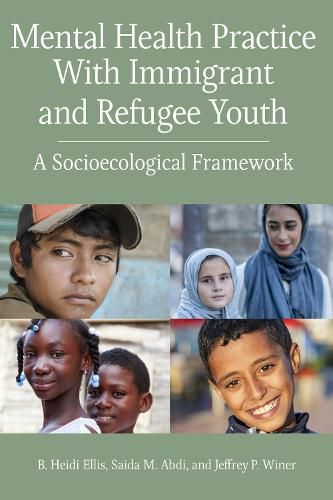Readings Newsletter
Become a Readings Member to make your shopping experience even easier.
Sign in or sign up for free!
You’re not far away from qualifying for FREE standard shipping within Australia
You’ve qualified for FREE standard shipping within Australia
The cart is loading…






Nearly 70 million people today are refugees or forcibly-displaced migrants. More than half of them are children suffering from the effects of dislocation and violence.
This book provides a framework to guide mental health providers who work with refugees and immigrants. The authors describe the unique needs and challenges of serving these populations, and offer concrete steps for providing evidence-based, culturally-responsive care. Using the socioecological model, the authors conceptualize the developing child as living within concentric circles that include family, school, neighborhood, and society, embedded within a cultural context. Mental health providers identify and provide targeted support to combat disruptions within any or all of these ecological layers.
Chapters examine the complex ways in which culture impacts the refugee experience, barriers to engagement in mental health practice and strategies for overcoming them, assessment, collaborative and integrated mental health interventions, and efforts to increase resilience in children, families, and communities. The book is an essential guide for mental health providers, and all who seek to help children in need.
$9.00 standard shipping within Australia
FREE standard shipping within Australia for orders over $100.00
Express & International shipping calculated at checkout
Nearly 70 million people today are refugees or forcibly-displaced migrants. More than half of them are children suffering from the effects of dislocation and violence.
This book provides a framework to guide mental health providers who work with refugees and immigrants. The authors describe the unique needs and challenges of serving these populations, and offer concrete steps for providing evidence-based, culturally-responsive care. Using the socioecological model, the authors conceptualize the developing child as living within concentric circles that include family, school, neighborhood, and society, embedded within a cultural context. Mental health providers identify and provide targeted support to combat disruptions within any or all of these ecological layers.
Chapters examine the complex ways in which culture impacts the refugee experience, barriers to engagement in mental health practice and strategies for overcoming them, assessment, collaborative and integrated mental health interventions, and efforts to increase resilience in children, families, and communities. The book is an essential guide for mental health providers, and all who seek to help children in need.